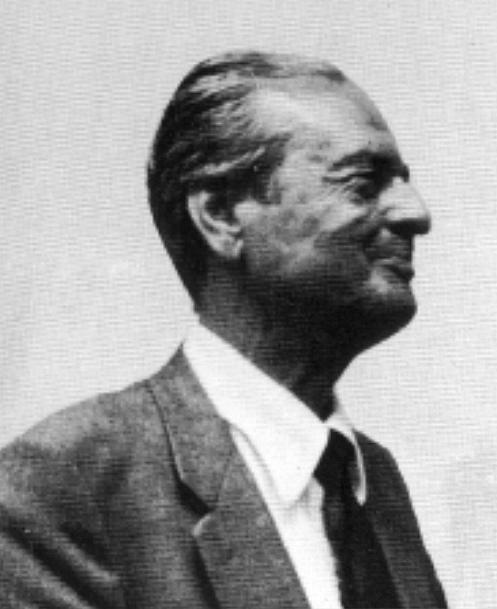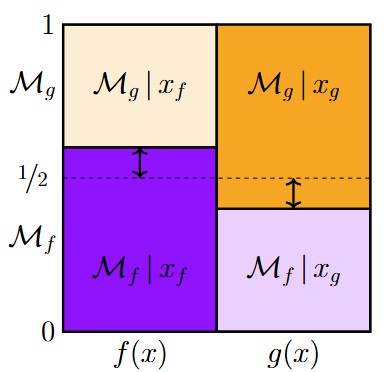This is the third and final post on the 1974 preface of Bruno de Finetti’s masterpiece “Theory of Probability”, which is missing from the reprint of the 1970 book. Below, the use of italics is always as in the original text.
De Finetti’s Preface Continued [Annotated]
“It would be impossible, even if space permitted, to trace back the possible development of my ideas, and their relationships with more or less similar positions held by other authors, both past and present. A brief survey is better than nothing, however (even though there is an inevitable arbitrariness in the selection of names to be mentioned).
I am convinced that my basic ideas go back to the years of High School as a result of my preference for the British philosophers Locke, Berkeley and, above all, Hume! I do not know to what extent the Italian school textbooks and my own interpretations were valid: I believe that my work based on exchangeability corresponds to Hume’s ideas, but some other scholars do not agree. I was also favourably impressed, a few years later, by the ideas of Pragmatism, and the related notions of operational definitions in Physics. I particularly liked the Pragmatism of Giovanni Vailati—who somehow `Italianized’ James and Peirce—and, as for operationalism, I was very much struck by Einstein’s relativity of `simultaneity’, and by Mach and (later) Bridgman.
As far as Probability is concerned, the first book I encountered was that of Czuber. (Before 1950—my first visit to the USA—I did not know any English, but only German and French.) For two or three years (before and after the `Laurea’ in Mathematics, and some application of probability to research on Medelian heredity), I attempted to find valid foundations for all the theories mentioned, and I reached the conclusion that the classical and frequentist theories admitted no sensible foundation, whereas the subjectivistic one was fully justified on a normative-behaviouristic basis.”
It is interesting that Dennis Lindley came to Bayesianism in much the same way as de Finetti. In his highly recommended 2000 paper “The Philosophy of Statistics”, Lindley describes his own conversion process as follows:
“I conclude on a personal note. When, half a century ago, I began to do serious research in statistics, my object was to put statistics, then almost entirely Fisherian, onto a logical, mathematical basis to unite the many disparate techniques that genius has produced. When this had been done by Savage, in the form that we today call Bayesian, I felt that practice and theory had been united. Kingman’s sentence is so apt to what followed.
‘Perhaps mathematicians select themselves by this desire to reduce chaos to order and only learn by experience that the real world takes its revenge.’
The revenge came later with the advocacy of the likelihood principle by Barnard, and later Birnbaum, so that doubts began to enter, and later still, as the plethora of counter-examples appeared, I realized that Bayes destroyed frequency ideas. Even then I clung to the improper priors and the attempt to be objective, only to have them damaged by the marginalization paradoxes. More recently the subjectivist view has been seen as the best that is currently available and de Finetti appreciated as the great genius of probability. It is therefore easy for me to understand how others find it hard to adopt a personalistic attitude and am therefore grateful to the discussants for the reasoned arguments that they have used, some of which I might have myself used in the past.” (Lindley, 2000, p. 336).
Let’s continue with de Finetti’s preface:
“I had some indirect knowledge of De Morgan, and found that some of Keynes’ ideas were in partial agreement with mine; some years later I was informed of the similar approach that had been adopted by F. P. Ramsey.”
An earlier post in this series already covered the similarities between de Morgan’s and de Finetti’s ideas on probability. De Finetti continues:
“Independent ideas, which were more or less similar, were put forward later by Harold Jeffreys. B. O. Koopman, and I. J. Good (with some beautiful new discussion which illustrated the totally illusory nature of the so-called objective definitions of probability). I could add to this list the name of Rudolf Carnap, but this would be not altogether proper in the light of his own vivid, subjective behaviouristic interpretation. (Richard Jeffreys, in publishing Carnap’s posthumous works, seems convinced of his underlying subjectivism.) A singular position is occupied by Robert Schlaifer, who arrived at the subjectivistic approach directly and with impressive freshness and originality, with little knowledge of previous work in the field. A similar thing, although in a different sense, may be said of George Pólya, who discussed plausible reasoning in mathematics in the sense of the probability (subjective, of course) of a supposed theorem being true, given the state of mind of the mathematician, and its (Bayesian) modification when new information or ideas appear. The following statement of his is most remarkable: `It seems to me more philosophical to consider the general idea of plausible reasoning instead of its isolated particular cases’ like inductive (and analogical) reasoning. (There have been so many vain attempts to build a theory of induction without beliefs—like a theory of elasticity without matter.)”
I know Jack Good’s work reasonably well, but I am unaware of the “beautiful new discussion which illustrated the totally illusory nature of the so-called objective definitions of probability”. If I come across it in the future I will blog about it here. You can find a blog post on Pólya here. De Finetti continues:
A very special mention must be reserved, however, for Leonard J. Savage and Dennis V. Lindley, who escaped from the objectivistic school, after having grown up in it, by a gradual discovery of its ambiguities with the clarity of the subjectivistic theory, and the latter’s suitability for every kind of practical or theoretical problem. I have often had the opportunity of profitable exchanges of ideas with them, and, in the case of Savage, of actual collaboration, I wrote briefly of Savage’s invaluable contributions as a dedication to my book Probability, Induction and Statistics, which appeared a few months after his sudden and premature death.
One should note, however, that, even with such close colleagues, agreement ought not to be absolute, on every detail. For example, not all agree with the rejection of countable-additivity.
Finally, having mentioned several of the authors who are more or less connected with the subjectivistic (and Bayesian) point of view, I feel an obligation to recall three great men—the first two, unfortunately, no longer with us—who, although they all shared an opposed view about our common subject, were always willing to discuss, and were extraordinarily friendly and helpful on every occasion. I refer to Guido Castelnuovo, Maurice Fréchet and Jerzy Neyman.Rome, 16 July 1973
Bruno de Finetti”
This concludes our three-part series on de Finetti’s preface.
References
de Finetti, B. (1974). Theory of Probability, Vol. 1 and 2. New York: John Wiley & Sons.
Lindley, D. V. (2000). The philosophy of statistics. The Statistician, 49, 293-337.
About The Author

Eric-Jan Wagenmakers
Eric-Jan (EJ) Wagenmakers is professor at the Psychological Methods Group at the University of Amsterdam.



